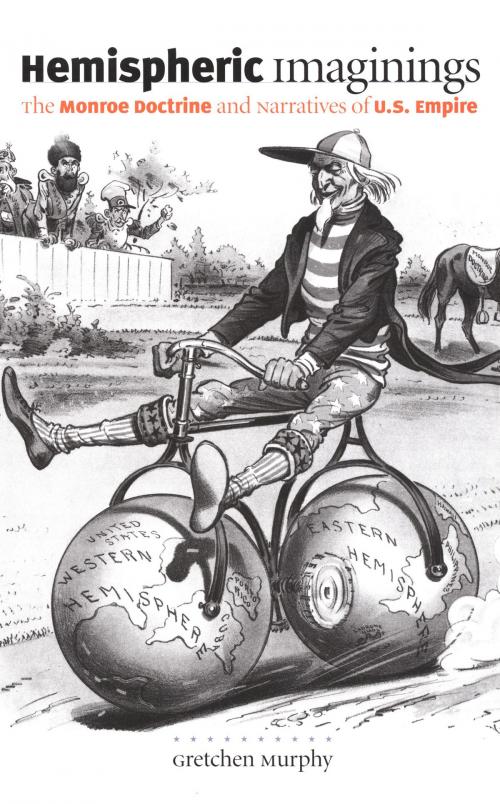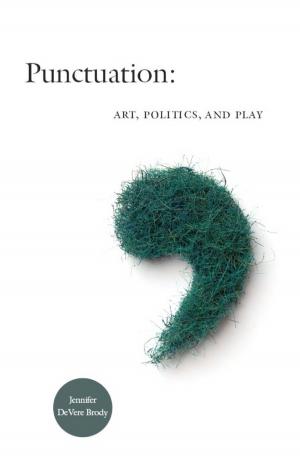Hemispheric Imaginings
The Monroe Doctrine and Narratives of U.S. Empire
Nonfiction, Social & Cultural Studies, Political Science, International, International Relations| Author: | Gretchen Murphy, Donald E. Pease | ISBN: | 9780822386728 |
| Publisher: | Duke University Press | Publication: | April 5, 2005 |
| Imprint: | Duke University Press Books | Language: | English |
| Author: | Gretchen Murphy, Donald E. Pease |
| ISBN: | 9780822386728 |
| Publisher: | Duke University Press |
| Publication: | April 5, 2005 |
| Imprint: | Duke University Press Books |
| Language: | English |
In 1823, President James Monroe announced that the Western Hemisphere was closed to any future European colonization and that the United States would protect the Americas as a space destined for democracy. Over the next century, these ideas—which came to be known as the Monroe Doctrine—provided the framework through which Americans understood and articulated their military and diplomatic role in the world. Hemispheric Imaginings demonstrates that North Americans conceived and developed the Monroe Doctrine in relation to transatlantic literary narratives. Gretchen Murphy argues that fiction and journalism were crucial to popularizing and making sense of the Doctrine’s contradictions, including the fact that it both drove and concealed U.S. imperialism. Presenting fiction and popular journalism as key arenas in which such inconsistencies were challenged or obscured, Murphy highlights the major role writers played in shaping conceptions of the U.S. empire.
Murphy juxtaposes close readings of novels with analyses of nonfiction texts. From uncovering the literary inspirations for the Monroe Doctrine itself to tracing visions of hemispheric unity and transatlantic separation in novels by Lydia Maria Child, Nathaniel Hawthorne, María Amparo Ruiz de Burton, Lew Wallace, and Richard Harding Davis, she reveals the Doctrine’s forgotten cultural history. In making a vital contribution to the effort to move American Studies beyond its limited focus on the United States, Murphy questions recent proposals to reframe the discipline in hemispheric terms. She warns that to do so risks replicating the Monroe Doctrine’s proprietary claim to isolate the Americas from the rest of the world.
In 1823, President James Monroe announced that the Western Hemisphere was closed to any future European colonization and that the United States would protect the Americas as a space destined for democracy. Over the next century, these ideas—which came to be known as the Monroe Doctrine—provided the framework through which Americans understood and articulated their military and diplomatic role in the world. Hemispheric Imaginings demonstrates that North Americans conceived and developed the Monroe Doctrine in relation to transatlantic literary narratives. Gretchen Murphy argues that fiction and journalism were crucial to popularizing and making sense of the Doctrine’s contradictions, including the fact that it both drove and concealed U.S. imperialism. Presenting fiction and popular journalism as key arenas in which such inconsistencies were challenged or obscured, Murphy highlights the major role writers played in shaping conceptions of the U.S. empire.
Murphy juxtaposes close readings of novels with analyses of nonfiction texts. From uncovering the literary inspirations for the Monroe Doctrine itself to tracing visions of hemispheric unity and transatlantic separation in novels by Lydia Maria Child, Nathaniel Hawthorne, María Amparo Ruiz de Burton, Lew Wallace, and Richard Harding Davis, she reveals the Doctrine’s forgotten cultural history. In making a vital contribution to the effort to move American Studies beyond its limited focus on the United States, Murphy questions recent proposals to reframe the discipline in hemispheric terms. She warns that to do so risks replicating the Monroe Doctrine’s proprietary claim to isolate the Americas from the rest of the world.















